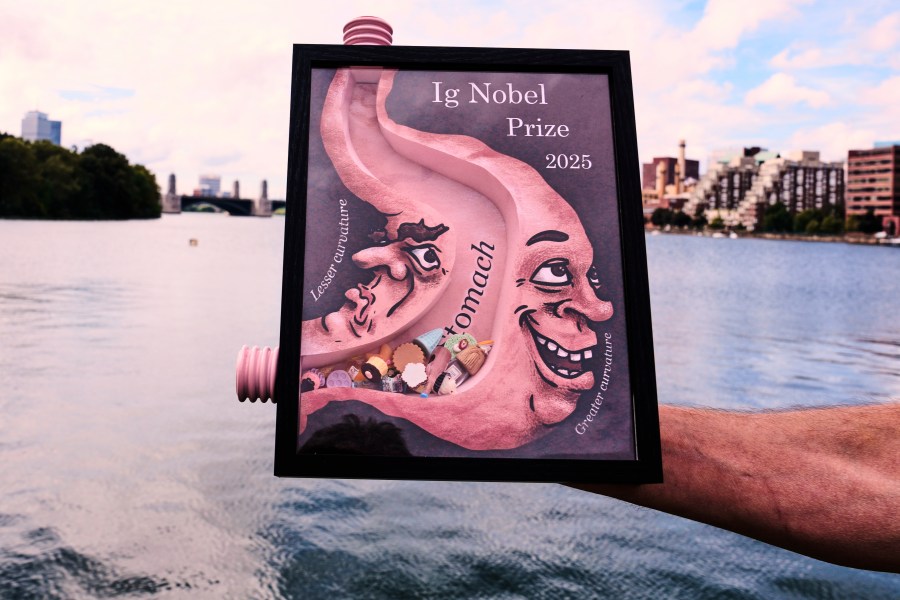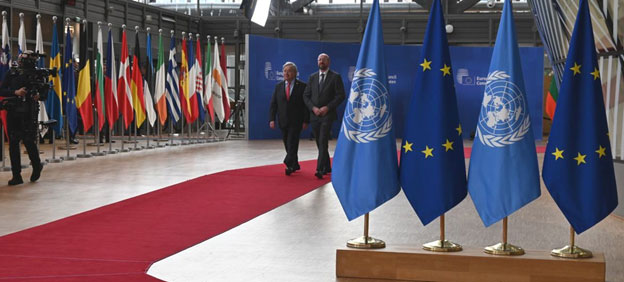
UPDATE: Researchers from Japan have just won the prestigious Ig Nobel Prize for their innovative study that involved painting cows with zebra-like stripes to deter biting flies. This unique experiment was celebrated on September 14, 2023, during a lively ceremony at Boston University.
The team, led by researcher Tomoki Kojima, conducted the experiment by applying tape and spray-painting Japanese beef cows with white stripes. Their findings revealed a significant reduction in fly attraction, leading to less discomfort for the cows, marking a fascinating intersection of art and science. “When I did this experiment, I hoped that I would win the Ig Nobel. It’s my dream. Unbelievable. Just unbelievable,” Kojima expressed, highlighting the excitement surrounding their unconventional approach.
The Ig Nobel Prizes, organized by the Annals of Improbable Research, celebrate humorous yet thought-provoking scientific achievements. This year’s event also honored a diverse range of studies, including one exploring how alcohol consumption might enhance foreign language skills, and another examining the peculiar growth patterns of fingernails over three decades.
During the ceremony, winners were humorously pelted with paper airplanes and honored by actual Nobel laureates, including Esther Duflo and Eric Maskin. Duflo, recognized for her groundbreaking work on poverty alleviation, and Maskin, known for his contributions to mechanism design theory, added a touch of prestige to the event.
In a year filled with quirky research, other notable winners included a group from India investigating the effects of foul-smelling shoes on people’s experiences with shoe racks, and a team from the U.S. and Israel that studied the impact of eating Teflon on food volume. An unexpected highlight was the research conducted by Colombian scientists on the effects of alcohol on bats, revealing that these creatures, much like humans, experience impairment when consuming rotten fruit with high alcohol content.
“It’s a great honor for us,” said Francisco Sanchez, one of the researchers studying the drunken bats. “You can see that scientists are not really square and super serious and can have some fun while showing interesting science.” Sanchez noted that their findings indicated bats indeed become impaired in their flying and echolocation abilities after consuming alcohol.
The Ig Nobel Prizes, typically held weeks before the Nobel Prizes, have become a staple in celebrating the lighter side of scientific inquiry. As evidenced by the wide array of topics, the event encourages scientists to think outside the box. “Every great discovery ever, at first glance seemed screwy and laughable,” remarked Marc Abrahams, master of ceremonies.
The ceremony was not just a celebration of oddball research but a reminder of the importance of creativity in science. As the winners were celebrated for their unconventional achievements, the event sparked conversations around the future of research and the potential for humorous studies to influence serious scientific discourse.
Stay tuned for more updates as the world of science continues to surprise us with its quirky discoveries and innovative approaches.




